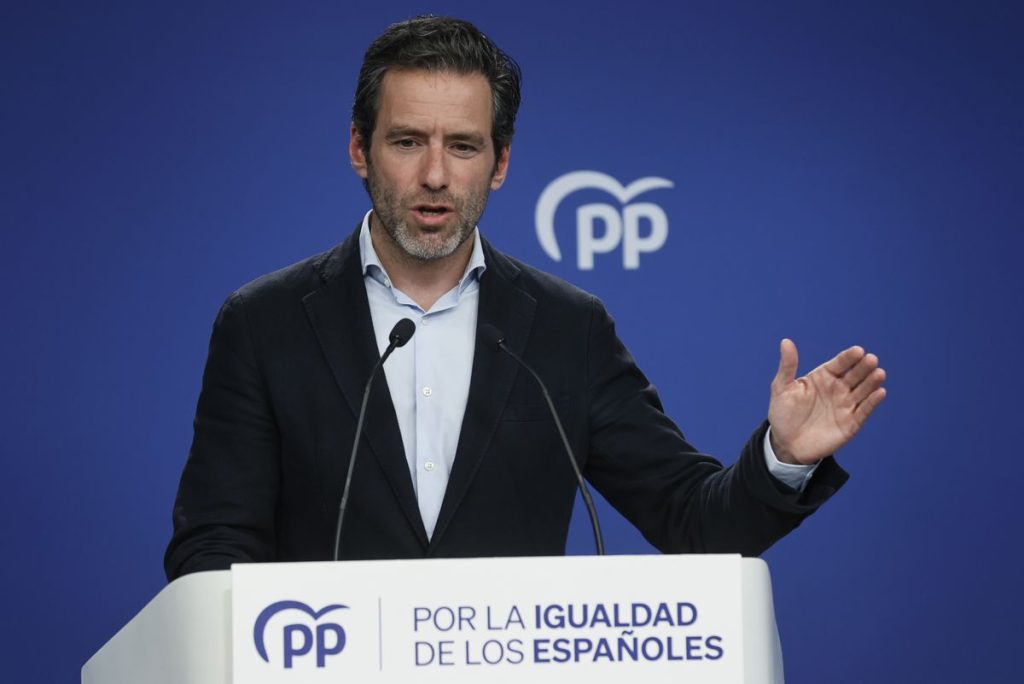Alberto Núñez Feijóo demanded last December from Pedro Sánchez, during the last private meeting between the opposition leader and the Prime Minister, that the European Commission play a mediating role as a sine qua non condition to negotiate the renewal of the General Council of the Judiciary (CGPJ), the governing body of the judges, which has been blocked for over five years. The PP leader resorted to this formula to re-engage in the negotiation after the latest breakdown, arguing that he could not trust the Government. The Commissioner of Justice, Didier Reynders, assumed the role of mediator between the parties, but after announcing that he will start his leave ten days early to run for the Secretary General of the Council of Europe, the PP downplays the mediation task, which will now be carried out by the European Vice-President Vera Jourová.
The Popular Party now downplays the role played by the EU mediator. “Reynders is not important, what is important is Bolaños. We are one tweet away from reaching an agreement,” emphasize sources from the PP leadership, to the dismay of the negotiators of the PSOE. In fact, Ferraz insists that they are “negotiating with the format chosen by the PP, the mediator chosen by the PP, and the deadlines assumed by the PP,” criticize sources from the PSOE leadership. “There are no excuses or delays possible,” they assert.
The tweet referred to by Feijóo’s cabinet puts the pressure on Félix Bolaños. The Popular Party asks the Minister of the Presidency, Relations with the Courts and Justice for a public announcement and a firm commitment from the Government to change the system for selecting the CGPJ members. “The PP will not budge,” insist sources from the top of the party. Until La Moncloa takes on that condition, the PP claims that the mediator’s figure is useless, despite Núñez Feijóo’s explicit demand. Genova initially approached Reynders to “convince” the socialists about this legislative modification, an issue on which Minister Bolaños aligns with the EU position.
The Government of Mariano Rajoy passed a Judicial Power reform in 2013 that kept the selection of the 20 CGPJ members in the hands of Parliament, three years after the recommendations from the Council of Europe to advance in the depoliticization of the judiciary. Reynders asks Spain to “renew” first and “reform” later. The agreement to unlock the Judiciary after Feijóo took over the PP in Génova was almost closed in October 2022. According to the PP, there were some issues still pending, such as the final drafting of the bill where the Congress ordered the new CGPJ to prepare a non-binding report on the new method of selecting members within six months so that judges gained weight in the system.
The recourse to the Commissioner of Justice by the PP is not limited to the CGPJ negotiation. On Tuesday, joint hearings of the Constitutional and Justice Committee of the Senate will begin with legal experts requested for the amnesty law, and originally the Popular Party planned to call Reynders to the upper house, but they ultimately discarded that option due to his mediation role between the Government and the PP and because he would have to resign soon from his position, as has happened recently. The eight individuals proposed by Feijóo’s party to oppose the amnesty measure are ultimately jurists and law professors from the Spanish legal realm.


